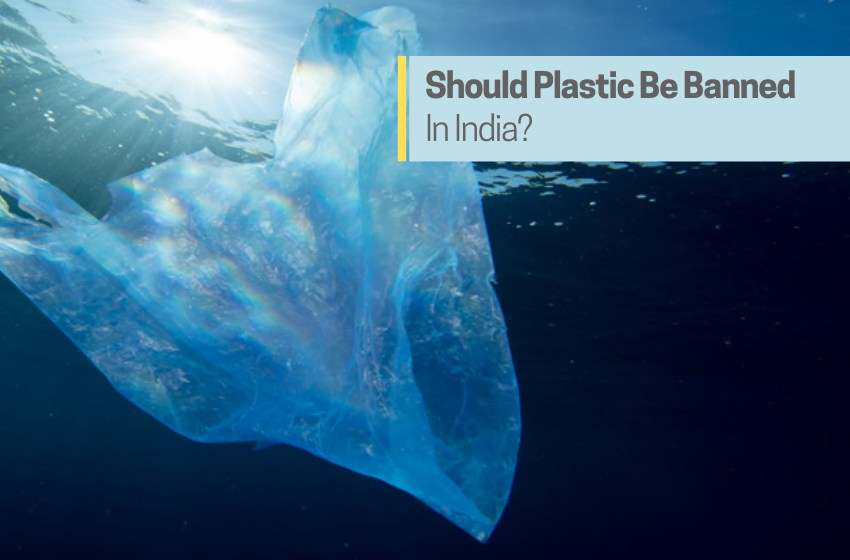Plastic is a polymer, which are long chains of molecules that are made from repetitive links known as monomers. Plastic is often produced from chemicals such as petroleum. Plastic can be turned and twisted to form any kind of shape or flexibility. Plastic is popular because of its easy-to-use characteristic, durability, water resistance, and because the fact that they are inexpensive. Plastic is manufactured from fossil fuels but with time it is also being manufactured from renewable materials like corn and cotton.
In many sectors, plastic is an essential commodity. Plastic is common used in the manufacture of goods, for packaging purposes. It is waterproof, can be bought at a very low rate, easy to carry and manage, and is resistant to corrosion. In the medical sector, plastic is used heavily in the form of syringes and gloves. After all, they control contamination and infection because they can be used for a single-use purpose.
In the food sector, plastic is heavily used as a form of packaging because it keeps food fresh and ensures hygiene. In small eateries in India, single-use plastic materials like, crockery is used to control expenses and again, to ensure hygiene. Many bathroom products are made travel-sized which people think are a waste of plastic prove to be useful for a majority of the Indian population because of their affordable prices. With this, it is important to note that low-income families, which vastly contribute to the Indian population, are the greatest consumers of plastic because of its affordable value. Plastic products are a lifesaver to the Indian population because of the affordability it offers.
Plastic is here for the Long Run
While plastic has been an environmental hazard since the beginning of time, it is essential to take into consideration the ever-rising inflation of the Indian market. Time and again, measures have been taken to ensure that certain types of plastic are banned in India so that the amount of plastic waste flowing through the Indian sewages and seas alike is curbed to the best of the government’s ability. The Ban on plastic mostly hurts the low-income sector as the majority of the products present in the market are made of plastic, contain plastic, or are carried in plastic.
Apart from consumers, new start-ups or businesses should also be taken into consideration. Because plastic is inexpensive and easily accumulated, small businesses use plastic products or packaging to curb their expenses. With the ban on plastic, these small business owners will have to resort to pricier items available in the market. That will hurt their budget to a great degree to an extent that it will hurt their business too.
Common thinking is that plastic is easily replaceable. But that is not the case. While there are some biodegradable options like paper, card-boards et cetera, which are better options to choose from because of the amount of water and natural resources that are consumed while producing them, it should be duly noted that it is not an easy task to find an alternative which will constitute all the properties of plastic which make it a consumer favorite. In a study, it was found that plastic is more eco-friendly than paper and cotton but only in areas where there is a proper waste management system preventing any leakages. Unfortunately for India, we have a long way to go where there is a well-structured waste management system with no leakages at all, until then it is a great initiative to make plastic lesser in circulation.
[irp]
History of Plastic Ban in India
Plastic was initially banned for the first time in India, in 1998, in the state of Sikkim. Carry bags with a thickness of 20 microns or less were banned in the effort to reduce plastic that was the most harmful to the environment along with the effort to restrict packaging of food in recycled plastic bags. Since then it has been the constant effort of the government to lessen the use of plastic in the country. Ensuring the use of lesser plastic or ensuring a ban on plastic has also been one of the many recurring political strategies of the government which hurts the industry, much to its displeasure.
The first firm step was taken towards the drive was when the Plastic Waste (Management and Handling Rules) banned the use of plastic that was used to pack and store materials like Gutkha, Tobacco, and Pan Masala in 2011.
In the year 2016, the Union Environment Ministry released a new set of Plastic Waste Management Rules, which we claimed to wipe out all multi-layered plastics used to pack products. The ban didn’t go quite as planned and the bill had to be scraped off.
Bans in the States never work out. History has been the witness of bans being implemented with vigor but not turning out well because of a lot of factors, one of them being the notorious consumer of plastic and the lack of government’s initiative to carry out the steps needed to ban anything strictly. Plastic continued to be burned in most States and the use of plastic bags was very much in use. The railway tracks and bus terminals looked free of plastic as ever but the reality was not quite the same.
Despite the continuous setbacks faced by the government of India when it came to enforcing the plastic ban in India, the government of India proposed yet again another proposal. The Union Ministry proposed a ban on several plastic materials which are of single-use. Along with that the thickness of plastic now should be maintained over 120 microns; earlier it was 20 microns and at present, the ban is on the plastic of fewer than 50 microns. The government’s initiative in an attempt to deal with a huge amount of plastic waste that is already present in the country.
This comes after the knowledge that almost 40% of the country’s plastic waste goes uncollected every day. The constant accumulation causes chocking of the drainage systems and the river systems in the country. Not only do the aquatic animals ingest the contaminated water, but the littered plastic is also consumed by innocent stray animals. The burning of plastic results in the emission of harmful gases which are inhaled by humans and animals alike. Not only plastic harms the environment but also the health of humans and animals alike. The government thinks that if virgin or recycled plastic comes into circulation, it will significantly improve the collection and recycling of plastic waste.
Responsible Step Towards Change
It is time to take into consideration that in a country with a huge population like India, it might not be solely the problem of waste management to clean up all the plastic waste. After all the people responsible for the huge accumulation of plastic waste is not only the government but all the millions of Indian citizens. While we should leave it to the government to set up the perfect waste management system to take care of the plastic waste problem, we as responsible citizens should play a vital role in the plastic removal strategies and initiatives.
We have to wake up from our comfortable slumber and realize that if not taken care of, plastic waste will remain trapped in our environment for centuries to come. While plastic breaks down into fragments easily, its integral polymer chains take up very high temperatures to break down further. This can be only done through the recycling process and only 15% of the plastic waste is recycled all over the world. It should be considered that Indian manufacturers are hurt by the bans imposed by the government to curb plastic waste, it is the manufacturers themselves who use raw materials made from plastic and discard them after a single-use. This results in further production of such single-use products and further accumulation of plastic. The waste, however, does not get recycled and is thrown away into the water bodies or burned.
[irp]
Plastic should be banned but that is not a very strong point to take further. Just like Rome wasn’t built in a single day, reducing plastic consumption in a notorious country like India can be nothing short of rocket science. We should take some steps ourselves to curbs the waste, like following the three Rs we were taught in school.
- Reduce- It is high time we should start putting effort into contemplating our overall consumption of plastic. While it can be difficult to adopt a minimalist lifestyle we should make an effort to reduce our consumption of plastic by only using what is needed and not desired. The desired products should be of other plastic alternatives, if possible. When we are finally living in a world where we are even fighting for oxygen, we should remember that our natural resources are being depleted and start respecting the planet for the resources it provides it and not try to mold everything to serve our purposes.
- Reuse- We should make it a point to buy things that we can keep on reusing. This will not only result in the depletion of the use of plastic but also provide a good enough window to clean the accumulated waste. It is said that we are now living in a time where we throw away items that break, instead of repairing them. We should repair and renew the lives of whatever items still look good enough for further use.
- Recycle- Recycling the waste we generate, seals the deal in proper management of waste. If we recycle plastic waste, the manufactures will use that waste to manufacture products like furniture, packaging materials, and clothing. This gives and take will create a cycle where only the existing plastic will be in circulation and there will not be any need to manufacture more.
Plastic Ban: Is it Worth the Effort?
Nothing has ever come out of banning plastic in India. If we look at the statistics, the bans have never worked out in the country. Then why doesn’t the government go on to introduce other ways to curb plastic accumulation?
- One of the reasons would be the political agenda it gives to the government. Just like promising good roads, (in which recycled plastic could be used), the government also promises a healthier, plastic-free environment for us to live in. As gullible citizens, we all fall for that. Another reason could be the tired policy-making of the government after it comes to power.
- Long gone are the promises and only lazy initiatives are present to fulfill the far-fetched promises of the government. While the government is to the blame, the notorious citizens of the country of India have no lesser hand at increasing the plastic usage and waste in the country. If the bans were taken seriously by the citizens and their responsibilities realized and fulfilled, half the problem would have had ended by now.
- Coming back to the laziness of the government it is important to note that the bans imposed by the government must be carried out with the same seriousness and effort with which it was imposed to gain votes or confidence of the citizens. Instead of fighting losing battles to regulate pollution and waste, agencies should strongly enforce the ban on the country.
- With a vast population like India, it is understandable that the agencies have more urgent matters that need to be looked into and accomplished every day and plastic waste management is the last thing on their list. Again, this strengthens our point that bans are useless in a country like India. A lot of states have tried to carry out bans on plastic but have failed to do so.
- If the government wants the imposition of banning to work, it should also work on the betterment of the work conditions of the people responsible for waste management. Government officials have a poor understanding of the threat that pollution pose to the environment and living organisms, have huge workloads, and have a lack of motivation to take steps in the eradication of plastic waste.
Conclusive Viewpoints
Because the majority of the Indian population comprises of youth, India as a country is finally realizing how knee-deep it is in plastic waste and is taking substantial steps like cleanliness drives and adopting a minimalist lifestyle to helo curb as much plastic waste as possible. The situation cannot change just by the youth changing their lifestyles and taking an active part in cleanliness drives but it will if every part responsible for the waste management works together to bring out the change for a better environment to live in.
The government, industry, as well as citizens, should work together and reduce, reuse and recycle plastic waste with vigor. We should remember that our efforts will not only provide a healthier living environment for us but also for our generations to come.
[irp]
Frequently Asked Questions
Q1. Why should plastic be banned in India?
Ans. The constant accumulation causes chocking of the drainage systems and the river systems in the country. Not only do the aquatic animals ingest the contaminated water, but the littered plastic is also consumed by innocent stray animals. The burning of plastic results in the emission of harmful gases which are inhaled by humans and animals alike. Not only plastic harms the environment but also the health of humans and animals alike.
Q2. What steps should be taken by us to curb the accumulation of plastic?
Ans. Reduce- While it can be difficult to adopt a minimalistic lifestyle we should make an effort to reduce our consumption of plastic by only using what is needed and not desired. The desired products should be of other plastic alternatives, if possible.
Reuse- We should make it a point to buy things that we can keep on reusing. This will not only result in the depletion of the use of plastic but also provide a good enough window to clean the accumulated waste.
Recycle- Recycling the waste we generate, seals the deal in proper management of waste.
Q3. Why plastic ban does not work in India?
Ans. With a vast population like India, it is understandable that the agencies have more urgent matters that need to be looked into and accomplished every day and plastic waste management is the last thing on their list.
Government officials have a poor understanding of the threat that pollution pose to the environment and living organisms, have huge workloads, and have a lack of motivation to take steps in the eradication of plastic waste.
Q4. What latest ban has been proposed by the government on plastic?
Ans. The Union Ministry proposed a ban on several plastic materials which are of single-use. Along with that the thickness of plastic now should be maintained over 120 microns; earlier it was 20 microns and at present, the ban is on the plastic of fewer than 50 microns.





